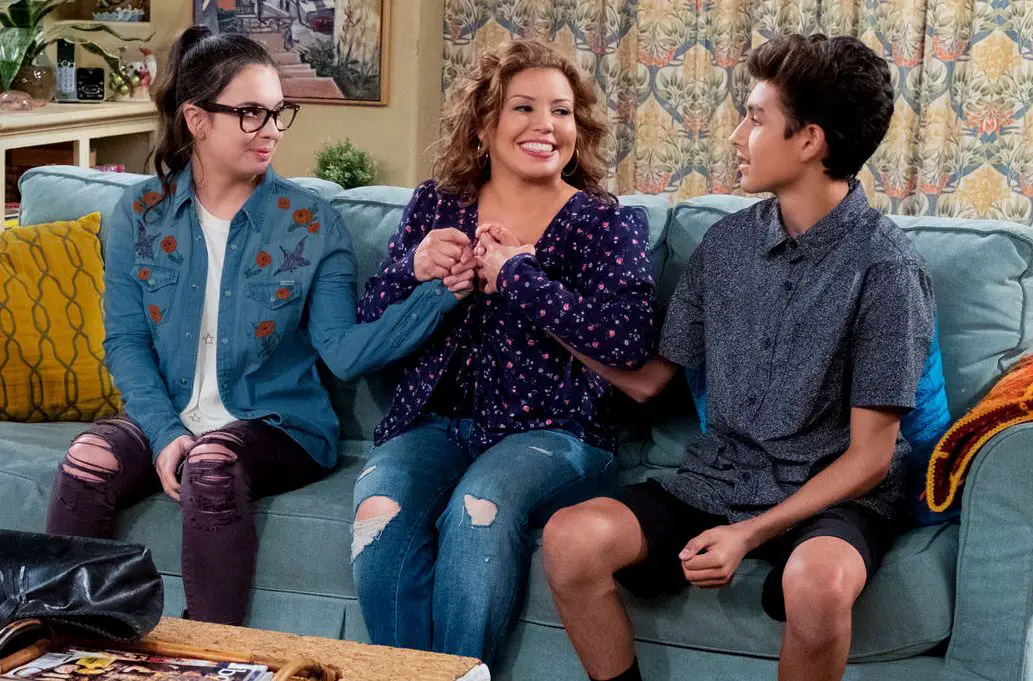Representation in television is something that has always been a longstanding struggle for certain audiences; there is not much of a diversity in an industry that pretends to have it, and the shows that portray and encourage diverse groups of individuals seem few and far between. This is why when Netflix originally released their original show “One Day at a Time,” many were ecstatic.
The show documents the life and struggles of a single Cuban-American mother. While the series is very light-hearted and humorous at times, it also addresses real-life problems without glamorizing them as shows usually do. And now, just when everybody is excited about finding something worthy of watching, Netflix has released a devastating statement: they’re cancelling the show.
According to Netflix’s official statement, they’re no longer continue the show because “simply not enough people watched to justify another season.” In response to the statement, fans took to Twitter to start the hashtag #SAVEODAAT, which actually trended at No. 1 for quite some time afterward, contradicting Netflix’s claim of a dwindling audience. Fans were outraged that a show that was so genuine was being pushed aside, arguably in favor of other Netflix shows that were more popular.
One of the biggest controversies now is over the renewing the show “13 Reasons Why” over “One Day at a Time.” “The f—-ing audacity netflix has to cancel shows with unparalleled representation like one day at a time and continue to renew this fucking toxic and entirely irresponsible garbage is beyond me” tweeted one angry fan.
The show “13 Reasons Why” remains pretty controversial for many reasons; mostly, critics allege that it glorifies suicide. Furthermore, the show does not offer a solution to suicide, which some stated was triggering in its own way.
“One Day at a Time” meant a lot to people who felt unheard or unseen by the world.
You know what #ODAAT is?
More than a show. That’s for sure.
I. Feel. Seen.
I. Feel. Heard.
My anxiety isn’t ugly here.
DO YOU KNOW how much of a blessing that is?!
Not just for me but for the MILLIONS of people. #SaveODATT #SAVEODAAAT #SaveOneDayAtATime
Save our Familia.— OH BRITTANY (@Oh_Brittany_89) March 20, 2019
Others praised the show’s portrayal of the character Penelope, a single mother who recently got out of the Navy and has PTSD. There is also an issue of identity, as Penelope’s daughter is gay and struggles in her Latinx family.
“A funny show about a Cuban family, that discusses lgbt teens in a non-sexual light, PTSD and depression, the life of a single mom, and healthy family dynamics is too important on a platform like Netflix,” said another Twitter user. T
he way the show connected with its audience is highly apparent despite the seemingly low ratings, going about it in a way that felt natural and realistic, not cookie cutter and rushed.
Despite the lack of viewers, “One Day at a Time” has an impressive ranking of 98 percent among critics. The real reason as to why Netflix decided to cancel “One Day at a Time” comes from the fact that the show itself was owned by Sony Pictures Television, “meaning the streamer had to pay a licensing fee to run the series.”
As for the stars of the show, they remain optimistic. Isabella Gomez, who played Elena, expressed her gratitude for being a part of such a life-changing show. “My heart is breaking, but I still can’t help but thank Netflix for giving the Alvarez family a home for 3 years and for changing my life,” she tweeted.
Gomez’s character remains one of the most beloved on the show for breaking through stereotypes surrounding the LBGT+ community. Justina Machado tweeted that she is honored to have played Gloria Alvarez on the show. “Yes it was a Latinx family but it was a universal story about family and love,” she said.
The ever-iconic Rita Moreno, who played the role of a typical and lovable Cuban grandmother, also tweeted about the loss of the show, saying, “I am grieving for the terrible loss of my beloved character, Lydia, on @OneDayAtATime.”
It may look like the end of a legendary show, but fans still hold some hope that it will be picked up by another network. One of the producers of the show, Mike Royce, tweeted, “Along with our studio Sony, we will be exploring other places One Day at a Time can live, and with any luck we’ll find one.”
Regardless of the outcome, the three seasons were life-changing for many viewers and will remain a staple of diversity for those who seek it, a reminder that they too, are seen and heard.

















